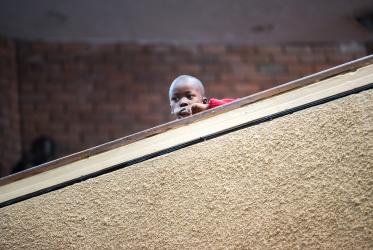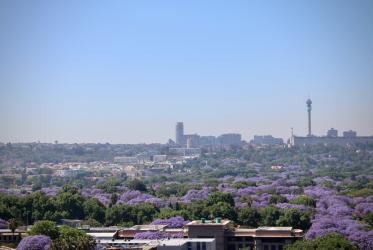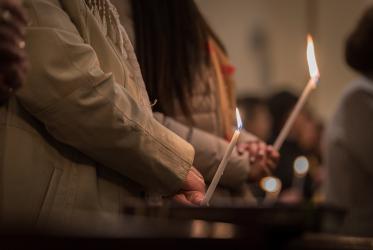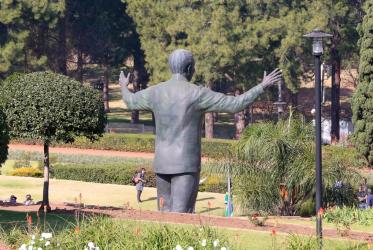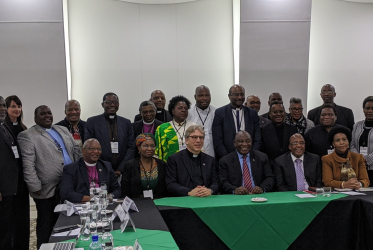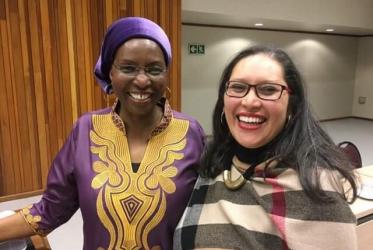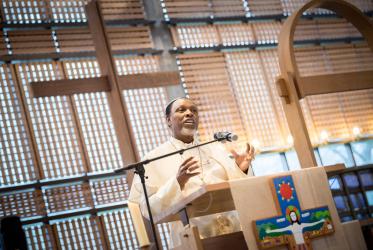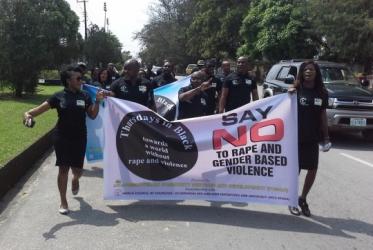Displaying 1 - 20 of 44
WCC condemns violence in Nigeria
22 October 2020
WCC delegation meets with South African President Ramaphosa
09 December 2019
Churches in southern Africa stand against violence, xenophobia
10 October 2019
“Love will find a way”
23 August 2018
In Nigeria, Thursdays in Black is flourishing
26 March 2018
Walking together against hatred and violence
26 February 2018


